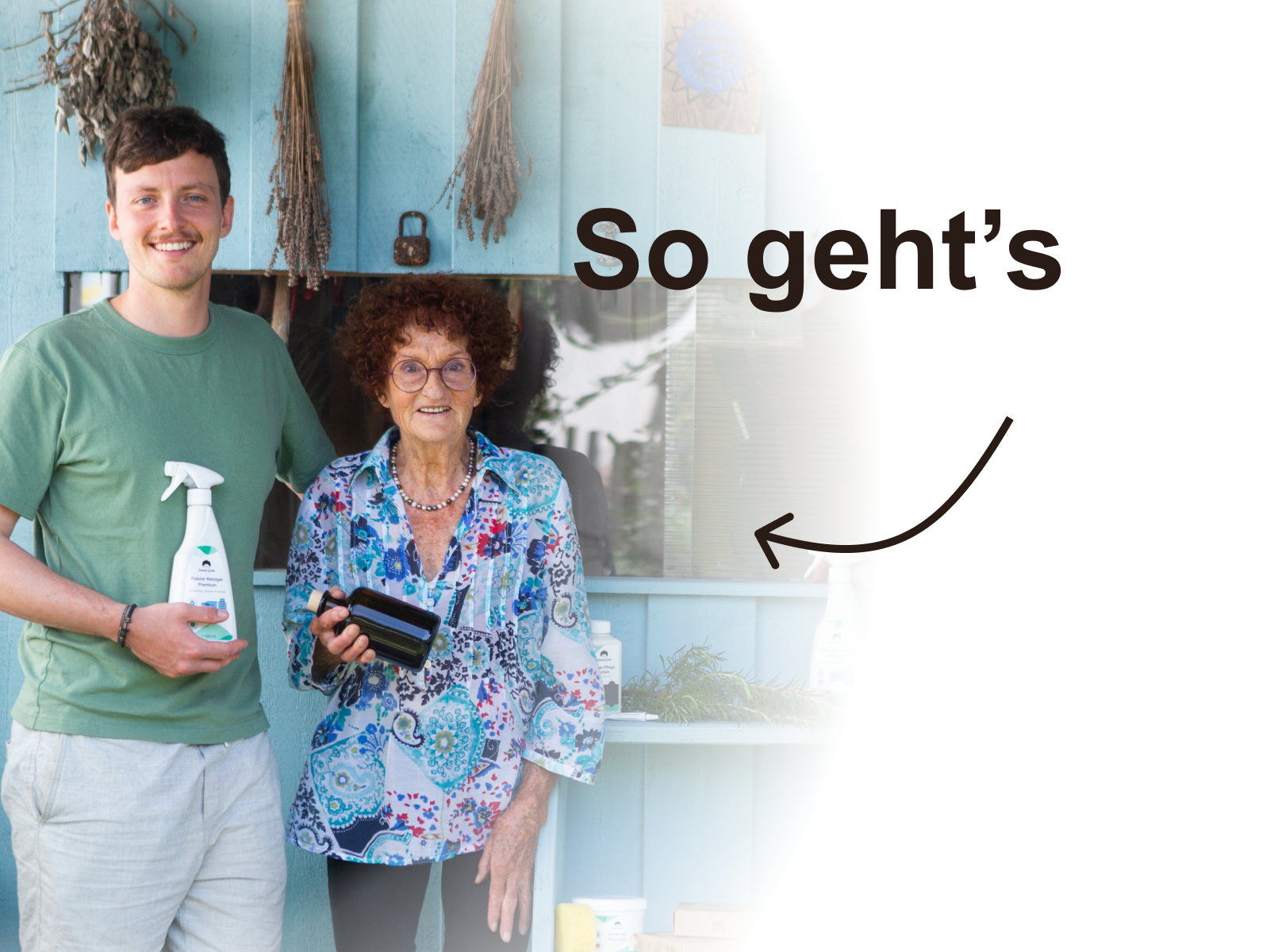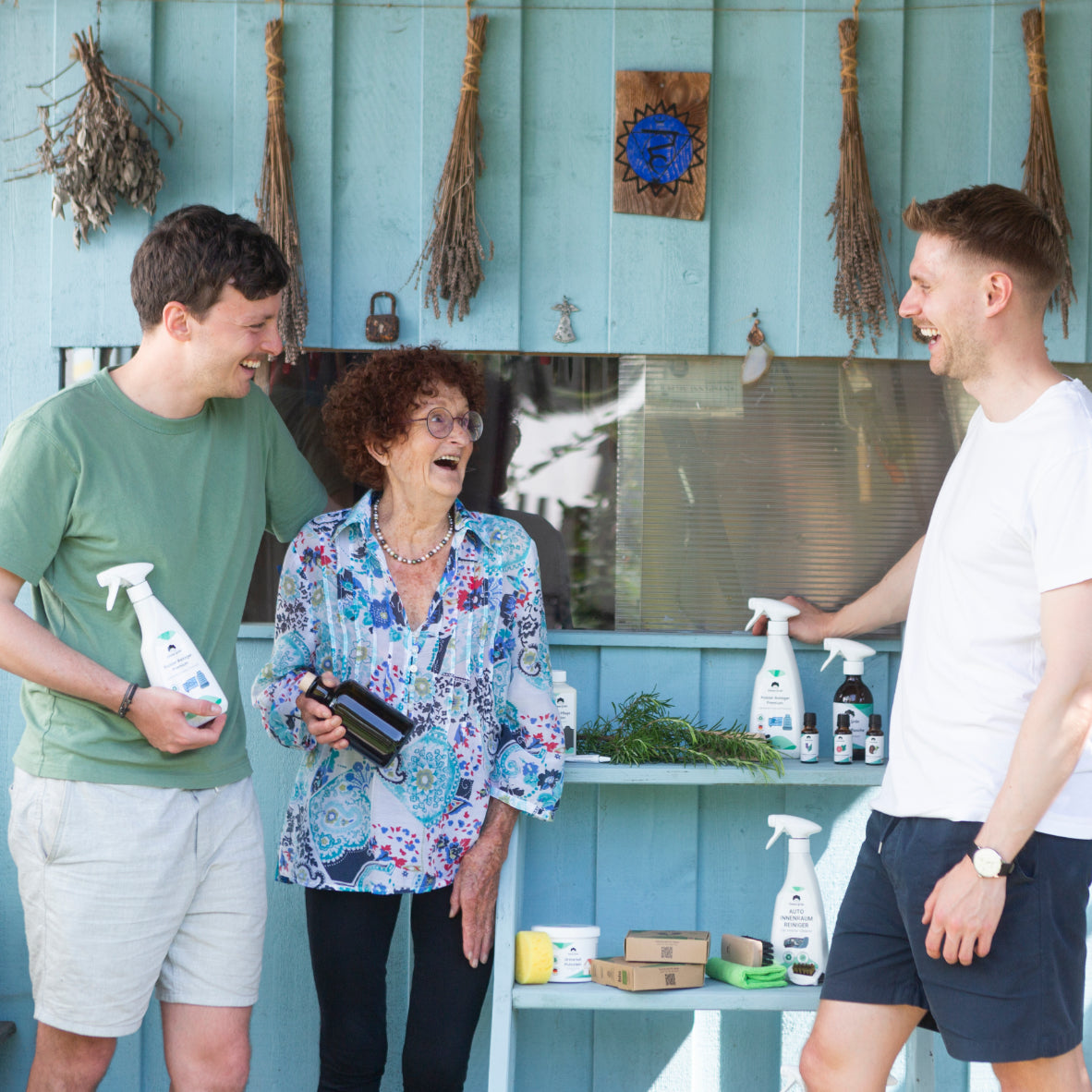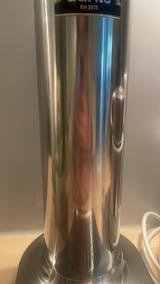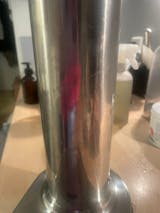Conventional cleaning products do not exactly shine with environmentally friendly product properties. The sales tactics of many manufacturers are also no longer in keeping with the times. If you believe the advertising, you always need a different product to clean different surfaces, which not only costs money, but also pollutes our environment. In the following text, you will find out what these risks are and how you can avoid them with the help of organic cleaning products.
What problems do conventional household cleaners cause?
Conventional cleaning products have one thing in common: they pollute water due to their chemical ingredients. In addition, each harmful ingredient poses various risks. The following substances are of particular concern:
But which environmentally harmful substances cause what damage?
Petroleum surfactants: What risks do they pose and what sustainable alternatives are there?
Petroleum surfactants are detergent substances and are used in conventional cleaning products to remove greasy dirt. As the name suggests, the surfactants are obtained from petroleum: a raw material that does not grow back naturally. Accordingly, it is not surprising that petroleum surfactants pollute the environment. But this is not the only problem they cause: they are also harmful to health. Proven risks include, for example, drying out of mucous membranes and our largest organ: the skin. Allergic reactions are also not uncommon when used.
If we use organic cleaners, we can avoid these risks. Instead of petroleum-based surfactants, they contain surfactants that do their job on the basis of plants. An environmentally friendly example is sugar surfactant. It cleans powerfully, is biodegradable, does not pollute our environment and is also harmless to humans.
Water softeners: What risks do water softeners pose and what environmentally friendly alternatives are there?
Softeners are designed to support surfactants in their washing performance. Ingredients that are of concern include polycarboxylate, EDTA, NTA and phosphate. Of the chemicals mentioned, phosphate is the most common in household cleaners. If it gets into the environment, it leads to over-fertilization and thus to the deterioration of bodies of water.
Organic cleaners also contain water softeners. However, they are less harmful to the environment. Silicates and citrates are some of them.
Fragrances: What dangers do fragrances pose and what sustainable alternatives are there?
Conventional cleaning products almost always contain synthetic fragrances. They do not produce better cleaning results. Nevertheless, they are added for a short-term fragrance experience. Unfortunately, they are classified as potentially allergenic.
Sustainable cleaners either contain no fragrances or contain natural fragrances. People with very sensitive skin should also be careful with these fragrances. It is particularly advisable for allergy sufferers to choose sustainable cleaners without fragrances.
Preservatives: How harmful are they and which organic alternatives can we use?
Conventional household cleaners are made to last longer with synthetic preservatives. Here too, many of them are classified as questionable. Formaldehyde is particularly harmful to health, as it can cause allergies and nausea, headaches, asthma and inflammation of the mucous membranes. Formaldehyde is also considered carcinogenic.
Organic cleaners do not contain artificial preservatives. Instead, natural ingredients such as citric or lactic acid and alcohol ensure a longer shelf life.
Disinfectants: What risks do they pose and what environmentally friendly alternatives are there?
Disinfectants can also be found in conventional household cleaners. They promise to destroy all germs. That doesn't sound bad at first. Unfortunately, there are one or two problems. Because being germ-free also means that harmless germs, which are responsible for strengthening our immune system, are also killed. The second risk: not all bacteria are eliminated with the help of disinfectants. They develop a resistance, which means that they are increasingly difficult to combat.
A popular disinfectant in conventional cleaners is triclosan. It is suspected that the chemical is carcinogenic and disrupts the balance of people's hormones. Due to the fact that germ-free cleaning only makes sense if sick people live in the same household, disinfectant cleaners should definitely be avoided. It is better to use an organic cleaner, as they do not contain any disinfectants.
Organic cleaners: less is more!
In a direct comparison with conventional household cleaners, sustainable products perform much better. This is because the ingredients are less harmful and therefore more compatible with the environment and humans. They are also the better alternative in terms of cleaning activity. And for good reason! In practice, it is often found that with a single product such as theUniversal cleaning stone by Emma Grünalmost all surfaces are clean again. Due to the sustainable ingredients, they are also less aggressive to sensitive materials such as leather, chrome, glass or brass. Because if you clean surfaces like these with a scouring cream or a scouring powder, irreversible scratches will appear over time, which are unsightly and ruin the material.
You can also do without special limescale removers from now on! Our universal cleaning stone also removes limescale residue. It also seals the surfaces so that water, such as in the shower, simply beads off and the formation of new limescale is significantly delayed.
Did you know that with theEmma Green Cleaning Stonealso get your windows and other glass surfaces clean again? However, it is important that you use the foam from the cleaning stone very sparingly so that you can easily remove the all-purpose cleaner with clean water and no streaks remain.
The same applies to your sports shoes or sneakers: thanks to its active ingredients, a small amount is enough. It is important that you remove all white residue at the end with a damp cotton or microfiber cloth.
Oven cleaning is also possible with theEmma Green Universal Plaster StoneNo more smelly problems. Unlike oven sprays that irritate the respiratory tract, you only need a small amount of our environmentally friendly product and, depending on how dirty it is, a little more or less muscle power. It's really easy to use: lather up - clean - rinse and your oven will shine like new. And the best thing about it is: it works without any questionable ingredients!








 Natalie,
Natalie,  Sarah und über 205.000+ Andere lieben Emma Grün.
Sarah und über 205.000+ Andere lieben Emma Grün.


































